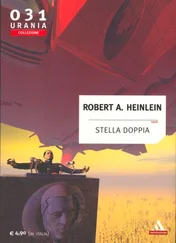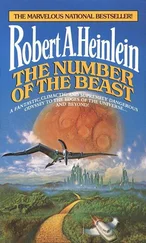Robert Heinlein - Expanded Universe
Здесь есть возможность читать онлайн «Robert Heinlein - Expanded Universe» весь текст электронной книги совершенно бесплатно (целиком полную версию без сокращений). В некоторых случаях можно слушать аудио, скачать через торрент в формате fb2 и присутствует краткое содержание. Жанр: Фантастика и фэнтези, на английском языке. Описание произведения, (предисловие) а так же отзывы посетителей доступны на портале библиотеки ЛибКат.
- Название:Expanded Universe
- Автор:
- Жанр:
- Год:неизвестен
- ISBN:нет данных
- Рейтинг книги:4 / 5. Голосов: 1
-
Избранное:Добавить в избранное
- Отзывы:
-
Ваша оценка:
- 80
- 1
- 2
- 3
- 4
- 5
Expanded Universe: краткое содержание, описание и аннотация
Предлагаем к чтению аннотацию, описание, краткое содержание или предисловие (зависит от того, что написал сам автор книги «Expanded Universe»). Если вы не нашли необходимую информацию о книге — напишите в комментариях, мы постараемся отыскать её.
Expanded Universe — читать онлайн бесплатно полную книгу (весь текст) целиком
Ниже представлен текст книги, разбитый по страницам. Система сохранения места последней прочитанной страницы, позволяет с удобством читать онлайн бесплатно книгу «Expanded Universe», без необходимости каждый раз заново искать на чём Вы остановились. Поставьте закладку, и сможете в любой момент перейти на страницу, на которой закончили чтение.
Интервал:
Закладка:
The most - used plane, the Ilyushin - 14, flies very low; you can see a lot and compare it with elsewhere. Are railroads single or double track? How much traffic on the roads? On the rivers? How about factory smokestacks and other signs of industry? How busy are the airfields? Or a dozen other things. I think you will conclude that no Russian claim should be accepted as true until fully verified. A "great industrial center" often turns out to be a jerkwater town.
But don't make written notes about such things! Don't!!!
Will your mail be opened? You must assume so. Will your rooms be bugged? It seems impossible to monitor every room of every Intourist hotel - but if the police get interested in you it takes just three minutes in these days of miniaturization to bug a room. I do know, from several incidents, that Soviet citizens believe that all hotel rooms are bugged.
I wish that a million of us would visit the USSR; the dollars the Kremlin would reap would be more than offset by the profit to us in having so many free men see with their own eyes what Communism is.
But go there with your eyes open - Intourist is as fully an agency of the Kremlin as is Gromyko or Mikoyan. Its functions are (1) to get your money in advance, (2) to deliver as little as possible by downgrading accommodations, by forced overcharges on food, and by clipping you on auto and guide service, (3) to waste your time so that you will see as little as possible, and (4) to see that what little time you have left is spent only on those things the Kremlin does not mind your seeing - "new construction" (from the outside), parks of "rest & culture" (filled with loudspeakers blaring propaganda), ballets, museums, stadiums, and the outsides of public buildings.
The first point you must accept; the game is crooked but it is the only game in town. Points two and three you can struggle against - I hope the tactics suggested in here will help. Point four is the toughest. After trimming you down to about three hours a day of useful time, Intourist can and will use up what is left in "stadium sightseeing" unless you fight it constantly. Even then, Intourist is adept in parrying with: "It's closed today - too bad you're not staying another day," and "That must be arranged in advance through the Ministry of Culture, etc." and "You should have requested that in Moscow."
The essence of Intourist tactics is: "Jam yesterday and jam tomorrow, but never jam today." The way to answer it is: "No! I will not look at the stadium, I do not want to see another subway station, I will not visit a museum to see another five hundred pictures of Lenin. I want to see thus - and - so and I want to see it now. Stop the car, get on the phone, and arrange it - or tell the Director that, as far as I am concerned, you're fired! I am keeping the car and the driver and will go on without you - I've got hours more of car service due me today and I won't be cheated out of it."
You will find whether your guide is truly a guide... or a guard placed with you to make sure you see only the facade of this regime. Whether or not you see "thus - and - so" you are sure to learn a surprising amount about how a police state is run... and thereby get your full money's worth in education.
AFTERWORD
After twenty years it would seem logical for me to return to the USSR to see what improvements, if any, they have made in handling tourism. I could plead age and health but I shan't - one trip to USSR is educational; twice is masochism.
If you have been to the USSR recently and if you know enough Russian that you could and did slip the leash occasionally and poke around and get acquainted without permission of Intourist, please write to me and tell me about it - what you saw with your own eyes, what you touched, what you counted, how you were treated. I am not interested in second - hand reports, not even from other Americans you trust, and I most emphatically am not interested in anything your guides told you.
If you know no Russian and took one of the standard Intourist trips - around the Black Sea, or the Leningrad - Moskva - Sochi trip - don't waste your time writing. I hope you had fun.
If you took the long railway trip, Vladivostok to Leningrad or Moskva - or vice versa - do please write to me. If you knew no Russian at first, I'm betting high odds that you spoke fluent (if ungrammatical) Russian long before you completed the trip. You will know many things I don't know as I have never been across Siberia. Alma Ata, KSSR, north of the Himalayas and just short of Sinkiang, is as far as I got.
Concerning believing what you see and ignoring reports: In thirty - odd years of habitual travel, Mrs. Heinlein and I have not been simply sightseeing; we have been studying other people's ways. Sometimes trivia - e.g., in Peru they make far better apple pie than Mom ever baked (treason!), Chile has us beat all hollow when it comes to ice - cream sodas, and the Finnish ice - cream cone is a work of art that makes what we call an ice - cream cone look sad.
But usually we are dead serious. Lately I've been making a global survey of blood services - but that is another story. Two things we have done consistently throughout the world: 1) See the slums; 2) evaluate the diet.
The fancy hotels and the museums and the parks are much the same the world over - but the slums are honest criteria even though a traveler can't assign a numerical value. The street people of Bombay and of Calcutta tell far more about India than does the glorious Taj Mahal.
Two other questions give direct, numerical comparisons: Q: How many long tonnes of protein (meat, fish, cheese) does this country consume in one year? (Then, privately, divide by the population.) Q: How many minutes must a journeyman carpenter work to earn enough to buy one kilogram of the local standard bread?
The first question tells the quality of the average diet; the second tells you how rich (or poor) that country averages. If you have also managed to see the slums, you have some idea of the range of wealth. You can't tell by looking at the extremely wealthy; all over the world they are careful to dress like upper middle class, no higher. But slums are honest and the most extreme wealth range is to be found in India.
The range of personal wealth in Russia, in 1960, was high, possibly greater than the range in the U.S.A. But the range showed in "perks," not in money - privately assigned automobiles and chauffeurs, summer houses, assigned living quarters. The Latvian Secretary (a Russian, not a Lett) of the Writers Union had as his offices a marble palace, extremely ornate inside and outside and loaded with sculpture and paintings (built - I was told - by the late Tsar for his favorite mistress. True? I don't know but I've never been in a more lavish palace and I have been in many). After meeting his colleagues - and living through a Russian drinking duel better left undescribed - we were taken by him out to the Baltic and shown his dacha ... thereby showing us that he had a private car, a chauffeur, and a summer home, as well as offices literally fit for a king. No mention of money, no need to - I was convinced that he was not going home to a meal of black bread, potatoes, and boiled cabbage.
Yet he was merely writer boss in Latvia, a small captive country - not General Secretary of the Writers Union in Moskva. I was in the Writers Union general headquarters in Moskva, a large office building; I did not meet the General Secretary. I assume that he lived at least as well as his stooge in Latvia.
How many levels are there between this minor boss in Riga and the members of the Praesidium? How well does Khrushchev - excuse me; Brezhnev - live? I shan't guess.
In the USSR it was not politic (risky) to ask the two key questions that I always asked in other countries, and seeing slums was forbidden. Twice we saw slums by accident, were hurried on past - primitive log cabins just outside Moskva, 1st century mud huts in Alma Ata that were concealed by screening but from one elevation we could see over the screening... until we were seen and cautioned not to stop there and not to take pictures.
Читать дальшеИнтервал:
Закладка:
Похожие книги на «Expanded Universe»
Представляем Вашему вниманию похожие книги на «Expanded Universe» списком для выбора. Мы отобрали схожую по названию и смыслу литературу в надежде предоставить читателям больше вариантов отыскать новые, интересные, ещё непрочитанные произведения.
Обсуждение, отзывы о книге «Expanded Universe» и просто собственные мнения читателей. Оставьте ваши комментарии, напишите, что Вы думаете о произведении, его смысле или главных героях. Укажите что конкретно понравилось, а что нет, и почему Вы так считаете.











